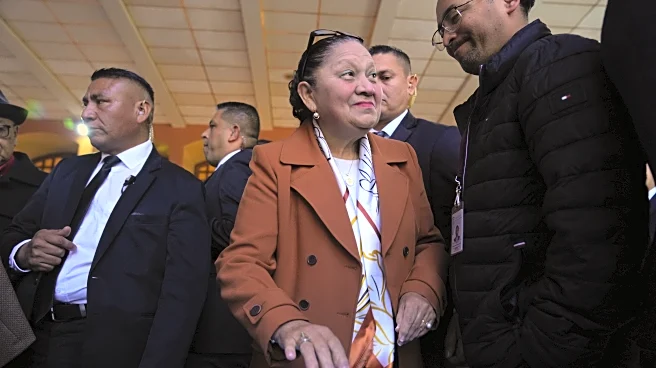What's Happening?
The U.S. Congress is facing the possibility of another government shutdown if appropriations bills are not passed by January 30th. Despite the urgency, Republicans and Democrats are embroiled in partisan conflicts, with two censure resolutions introduced
recently. Representative Brian Fitzpatrick (R-PA) has highlighted the increasing likelihood of a ban on congressional stock trading, reflecting ongoing debates over transparency and ethics in government. The Epstein Files Transparency Act is also under discussion, aiming to shed light on past controversies.
Why It's Important?
The looming threat of a government shutdown underscores the persistent gridlock in U.S. politics, which can have significant repercussions for federal operations and public services. The debate over congressional stock trading bans is crucial for addressing ethical concerns and restoring public trust in government officials. Transparency measures like the Epstein Files Transparency Act are vital for accountability and could influence future legislative priorities. These developments are pivotal in shaping the political landscape and public policy in the U.S.
What's Next?
As the deadline approaches, Congress must navigate partisan divisions to pass necessary funding bills and avoid a shutdown. The discussions around stock trading bans and transparency acts may lead to legislative changes, impacting how Congress operates. Stakeholders, including political leaders and civil society groups, will likely engage in intense negotiations to address these issues. The outcome of these debates could set precedents for future governance and ethical standards in U.S. politics.













![Cortisol vs. Melatonin: The Biological War Happening Inside Every Night-Shift Worker]](https://glance-mob.glance-cdn.com/public/cardpress/binge-magazine-card-generation/spaces/US/en/discover-daily/images/ppid_7byehtbd-image-177082393426031154.webp)



